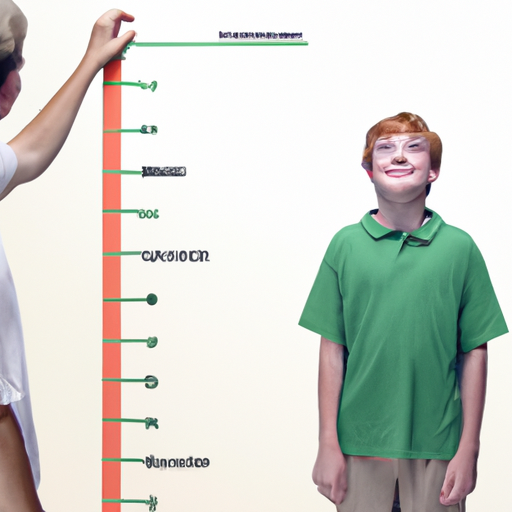Introduction
As a caregiver, you may often find yourself wondering about the growth process of your young male ward. The question, “when does a male stop growing?” is a common one and it’s not as straightforward as it may seem. It involves understanding the different stages of growth and the factors that influence them.
Understanding the Growth Cycle
First and foremost, it’s essential to understand that everyone’s growth cycle is unique. Some boys may stop growing at an earlier age than others. On average, however, most males stop growing by their late teens or early 20s.
Stages of Growth
- Infancy and Early Childhood: This is when a child experiences the most rapid growth.
- Puberty: This period is characterized by a second growth spurt, typically around the ages of 11-15.
- Adolescence to Early Adulthood: Growth slows down and eventually stops during this stage, usually by the age of 20.
Factors Affecting Growth
Several factors can influence a male’s growth, including:
-
Genetics: Your genes play a significant role in determining how tall you’ll be. If your parents are tall, you’re likely to be tall as well.
-
Nutrition: A balanced diet rich in essential nutrients is crucial for proper growth and development.
-
Physical Activity: Regular exercise promotes growth by stimulating the release of growth hormones.
-
Health Conditions: Certain health conditions can affect growth. For example, malnutrition can stunt growth, while conditions like gigantism can cause excessive growth.
| Factors | Description |
|---|---|
| Genetics | Play a significant role in determining height |
| Nutrition | Essential for proper growth and development |
| Physical Activity | Stimulates the release of growth hormones |
| Health Conditions | Can either stunt or stimulate growth |
How to Support Healthy Growth
As a caregiver, there are several ways you can support healthy growth in your young male ward:
-
Promote a Balanced Diet: Ensure they consume a variety of foods, including protein, fruits, vegetables, and whole grains.
-
Encourage Regular Exercise: Activities like swimming, cycling, and running can help stimulate growth.
-
Ensure Adequate Sleep: Sleep is essential for growth as most growth hormones are released during sleep.
-
Regular Check-ups: Regular medical check-ups can help detect any potential growth issues early.
What if Growth Seems Stunted?
If your young male ward seems to be growing slower than his peers, it’s crucial not to panic. Remember, everyone grows at their own pace. However, if you have serious concerns, consult with a healthcare professional. They can assess growth charts, medical history, and possibly conduct some tests to rule out any underlying conditions.
FAQ
Q: When do males typically stop growing?
A: Most males stop growing by their late teens or early 20s. However, this can vary significantly from person to person.
Q: Can diet and exercise influence growth?
A: Yes, a balanced diet and regular physical activity can help stimulate growth hormones and support healthy development.
Q: What if a young male seems to be growing slower than his peers?
A: Everyone grows at their own pace, but if you have serious concerns, you should consult with a healthcare professional.
Q: Are there medical conditions that can affect growth?
A: Yes, conditions such as malnutrition can stunt growth, while others like gigantism can cause excessive growth. Regular medical check-ups can help detect these conditions early.
Conclusion
Understanding when a male stops growing involves more than just identifying an age range. It’s about understanding the different stages of growth, the factors that influence them, and how as a caregiver, you can support healthy growth and development in your young male ward. Remember, every child is unique, and what’s most important is that they are healthy and happy.



